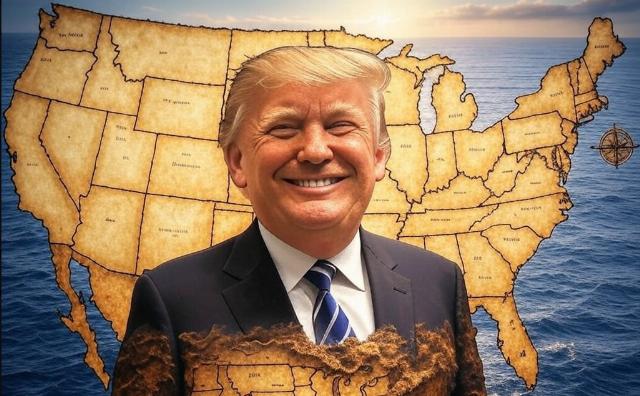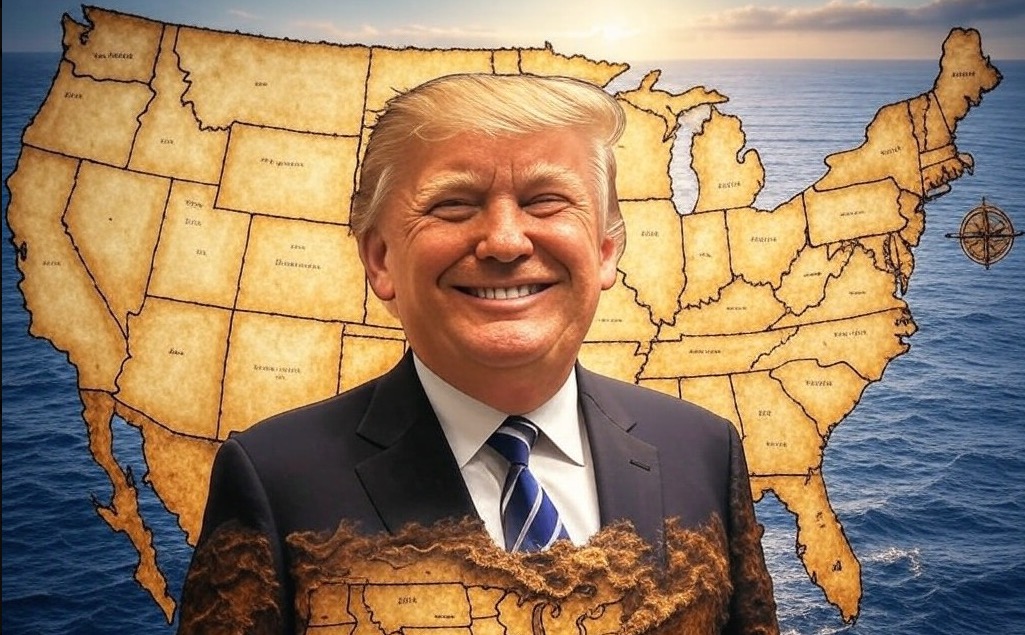

Grok
America isn't just a geographical entity; it's also a frame of mind, and MAGA will have a profound impact on it.In the complex political landscape of America, Alfred Korzybski’s profound insight, “The map is not the territory,” resonates with striking relevance. As we stand on the precipice of another Trump Administration, it’s crucial to understand that the ideological maps drawn by the MAGA movement and the America First doctrine are not merely symbolic or theoretical; they are blueprints for navigating the tangible, often tumultuous, territory of our nation’s future.
The conservative ethos, particularly within the context of the MAGA movement, has long been criticized as a nostalgic retreat to a bygone era. Yet, this view misunderstands the conservative map, mistaking it for mere nostalgia when it is, in fact, a strategic guide towards a robust, self-reliant, and sovereign America.
Consider the “America First” philosophy as a new map, one that diverges from the globalist models which have, for decades, dictated American policy. These globalist maps have often led us through territories fraught with economic dependency, cultural dilution, and a diminishment of national sovereignty. The Trump Administration’s return is not about returning to an outdated map but about redrawing one where America’s interests are paramount, where the territory of national prosperity is charted through policies of economic nationalism, stringent border control, and a reinvigorated national pride.
<img alt captext="Grok” src=”https://conservativenewsbriefing.com/wp-content/uploads/2024/12/the-maps-of-maga-charting-a-new-course-for-america.jpg” width=”550″>
Image by Grok.
This new map acknowledges the territory’s complexities—the economic disparities, the cultural wars, and the silent cries for a return to a government that serves its citizens first. By advocating for policies like tax reforms that benefit the American worker, reducing regulatory burdens that stifle innovation, and securing our borders, we’re not just revisiting old paths; we’re forging new trails through uncharted territories.
The MAGA movement is often painted with broad strokes by critics as a regressive force, but this is to miss the forest for the trees. MAGA, in its essence, is a call to action for rebuilding from within. It’s a map that seeks to restore the American Dream by focusing on the middle class, small businesses, and community values—elements that have been overlooked in the rush towards globalization.
This restoration isn’t about turning back time but about reclaiming the spirit of American ingenuity and self-reliance. It’s about understanding that the territory of America’s potential is vast, yet untapped, under the weight of bureaucratic overreach and international commitments that don’t align with our national interest. Here, “The map is not the territory” serves as a reminder that our political models, our policies, should be dynamic, adapting to the real needs of the American populace rather than adhering to outdated or foreign-centric paradigms.
In the political arena, where narratives often become more influential than facts, Korzybski’s principle is a beacon for truth. The media, the political establishment, have crafted maps of Trump and MAGA that do not align with the territory of their actions or intentions. They’ve depicted a narrative of chaos and division, whereas the territory shows a different story—one of economic revival, lower unemployment rates, and a push for peace through strength on the international stage.
The incoming administration must continue to challenge these misrepresentations by focusing on the tangible outcomes of their policies. The territory of Trump’s first term—marked by record low unemployment, significant deregulation, and a focus on energy independence — tells a tale of success that the old maps of the political elite refuse to acknowledge.
The Trump Administration’s policies have been backed by notable empirical data. Deregulation efforts saved American businesses over $220 billion annually, while tax reforms led to a $40 billion increase in real incomes, empowering the middle class. Unemployment reached historic lows, with Black, Hispanic, and overall unemployment rates at their lowest in decades, highlighting a more inclusive economic growth. Median household income rose to its highest level in nearly two decades, and poverty rates for minorities hit new lows in 2018.
The U.S.-Mexico-Canada Agreement (USMCA) replaced NAFTA, promising to generate over $68 billion in economic activity and create upwards of 550,000 jobs, showcasing a commitment to economic nationalism. Furthermore, the administration’s focus on energy independence led to record levels of oil and natural gas production, reducing reliance on foreign energy sources. These tangible outcomes provide a solid foundation for the assertion that the MAGA map is one of practical success, not just ideological posturing.
While advocating for this conservative map, we must also recognize the need for balance. The territory of America is diverse, with varied landscapes of thought, culture, and need. The America First doctrine should not isolate but rather unite by fostering an environment where all Americans can thrive. This means ensuring that while we prioritize national interests, we do not neglect the global responsibilities that come with being a superpower. It’s about finding a balance where American leadership on the world stage supports, rather than detracts from, domestic prosperity.
As we move forward, let us remember that maps are tools for navigation, not immutable truths. The map of MAGA, of America First, is one that seeks to navigate through the complexities of modern America with a clear vision of what America can be — a nation not bound by the past but inspired by it to forge a future of greatness.
In this era of political realignment, let us be guided by the wisdom that “The map is not the territory.” The Trump Administration’s challenge, and indeed the challenge for all of us, is to ensure that our political maps reflect the true contours of our national landscape — one of opportunity, unity, and unyielding pursuit of the American ideal.
If we can navigate by this principle, understanding that our policies must adapt to the real, living, breathing territory of America, we can indeed make America great again, not just in slogan but in the lived experience of every citizen. This is the map for our future, one where every step taken is towards a stronger, more sovereign, and genuinely prosperous United States.





